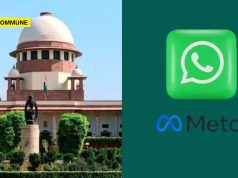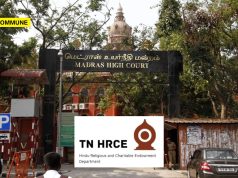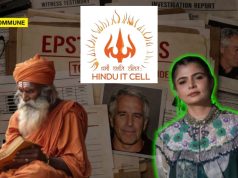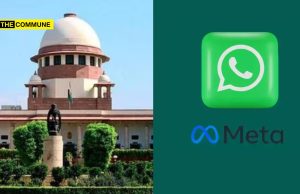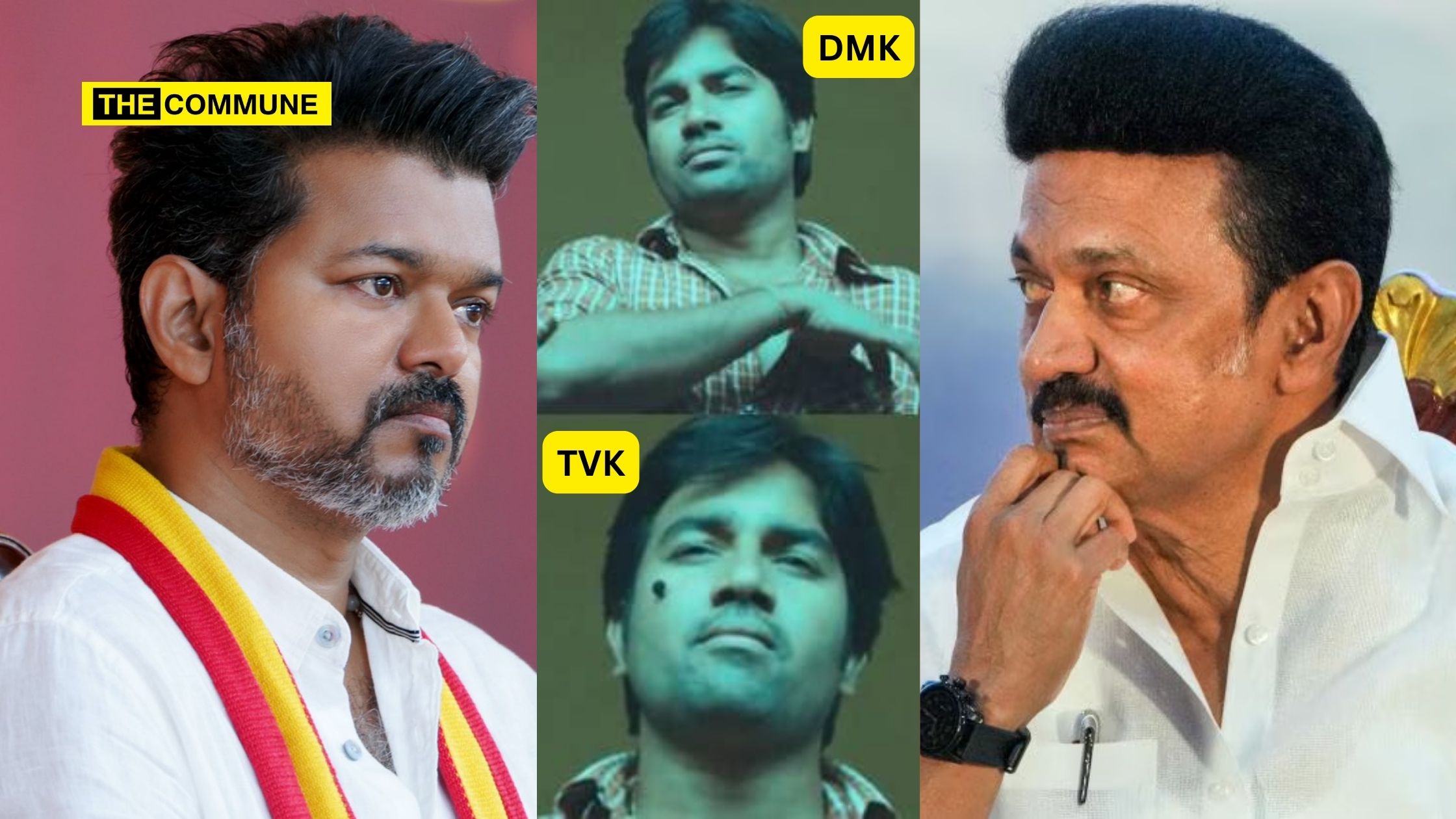
Actor-turned-part-time politician Vijay, the new entrant in Tamil Nadu’s political scene and head of the Tamilaga Vettri Kazhagam, has been increasingly adopting the DMK’s ideology and strategies. This shift comes despite facing severe criticism and after presenting himself as an efficient opposition to counter Dravidian ideology, with EV Ramasamy Naicker as one of his guiding figures was irony.
His ignorance became evident during his recent political stunt, where he visited Parandur to show support for farmers protesting against the proposed Greenfield airport project. This was his first major ground action as a politician, but now he’s planning to visit Vengaivayal, a remote village in Pudukottai district, where human feces were found in an overhead tank supplying water to Dalit residents—a case currently under investigation by the CB-CID for two years.
Here’s the catch: Why does Vijay’s political approach seem so familiar? The answer is simple—his tactics closely resemble those used by the DMK during their opposition days. Just like the DMK, Vijay often blames both the central and state governments for all issues, but in a hypocritical turn, they align with the very forces he opposes, compromising for their own political survival. Vijay has effectively copied this strategy, employing the same rhetoric and actions without any significant change, making him and the party like a mere replica of the DMK.
Has Vijay’s TVK Substituted DMK To Become TN’s New Anti-Development Force?
The answer is a straightforward yes. Vijay’s TVK, with its anti-progressive stance, is clearly adopting policies that mirror those of the DMK’s opposition era. His rhetoric, aimed at influencing the youth and parents, closely follows the same strategy employed by Dravidian ideologies for years. For instance, he opposes development projects like the proposed Parandur airport, champions an anti-NEET mindset, advocates for a two-language policy with a particular focus on opposing Hindi, and pushes for policies that disadvantage poor and marginalized students, particularly those in government schools. Additionally, his opposition to the National Education Policy, which seeks to establish a pan-India education standard, and his stance on the Citizenship Amendment Act echo similar opposition tactics used by the DMK in the past. The DMK, while in opposition, exploited these issues to rally the public by claiming the ability to secure people’s rights from the central government presenting a false dichotomy but after coming to power showed bare hands claiming that only the central government holds the power. Now, Vijay, the part-time, work-from-home politician, seems to be using the same strategy to manipulate public sentiment ultimately fooling the people with a similar political game.
In this backdrop, below are some of his political stunts that highlight his dual role — both as an opposition figure to the DMK and as a shadow of it, mirroring their strategies with the approach of “one punch in the coconut tree, one punch in the palm tree,” skillfully balancing his criticisms of both the central and state governments without upsetting either’s sentiments
Both Opposed Parandur Greenfield Airport Plainly
Vijay, during his visit to Parandur, alleged that the proposed airport would destroy 90% of farmland and 13 water bodies, calling the project “anti-people.“ He also questioned why the DMK, which had opposed projects like the Salem eight-lane expressway and Kattupalli port, was supporting the Parandur airport. However, a closer look at the Airports Authority of India (AAI) pre-feasibility report and the Tamil Nadu government’s decision-making process reveals that Vijay’s statements are either misleading or based on incomplete information.
The Airports Authority of India (AAI) conducted a detailed study to identify the most suitable site for Chennai’s second airport, considering locations like Padalam, Thiruporur, Pannur, and Parandur. Parandur emerged as the best option due to factors such as airspace restrictions at other sites, availability of 5,369 acres of land, better connectivity through the Chennai-Bengaluru Expressway, and fewer displacements compared to Pannur. Additionally, Parandur offers significant potential for future development, unlike the more densely developed Pannur site. Vijay’s claims about the project destroying 90% of farmland and 13 water bodies lack substantiation and overlook the thorough environmental and social impact analysis in the AAI report. Critics suggest that Vijay’s opposition to the project is driven by political motives, with his visit to the protest site viewed as a publicity stunt. Aviation experts argue that Parandur is the most feasible site for the airport, and relocating the project would cause delays and increased costs.
A similar approach was taken by the DMK in 2019 when it criticized the AIADMK government while in the opposition, but once it came to power, the party acknowledged the airport as a crucial need for the state’s economy.
Both Opposed NEET
During the executive committee meeting in Panaiyur on 3 November 2024, which was presided over by Vijay, a resolution was passed calling for the abolition of the National Eligibility cum Entrance Test (NEET). This comes despite data indicating that more underprivileged students, including those from tribal communities, have been able to secure medical seats through the exam in recent years.
Even the DMK, which had previously claimed to have the ‘Secret Weapon’ to make the central government to abolish NEET, switched its stance when Chief Minister MK Stalin admitted in a recent assembly speech that the central government holds the power to revoke NEET, contradicting earlier claims. TVK’s Vijay holds a similar stance on abolishing the exam, and it remains to be seen whether he will reverse his position like the DMK in the next NEET exam season.
Both Called For Abolition Of Governor Post
TVK’s resolutions on 3 November 2024 reiterated their stance on abolishing the Governor’s post. However, in the wake of the sexual harassment case at Anna University, which allegedly involved a DMK functionary, and widespread speculation that the DMK might protect the accused, TVK party chief Vijay sought the Governor’s intervention. It seems that Vijay has now come to recognize the importance of having a neutral figure above the government, capable of questioning the state’s actions when constitutional mechanisms fail. Previously, however, without fully understanding the role and significance of the office, he had called for the abolition of the Governor’s post, which was both impractical and unconstitutional. This stance has been a hallmark of the DMK since its inception, with the party’s founder C.N. Annadurai famously describing the position of Governor as “redundant as a goat’s beard.” This sentiment continues to this day, as evidenced in the 2024 Lok Sabha election manifesto, where the DMK again called for the abolition of the Governor’s post.
Similarly, in January 2024, Udhayanidhi Stalin, the current Deputy Chief Minister and scion of the DMK, led the party’s Youth Wing in passing a resolution calling for the abolition of the Governor’s post in Tamil Nadu. The resolution argued that the governor was attempting to run a parallel administration, undermining the authority of the state’s elected representatives. The resolution, passed at the 2nd DMK Youth Wing Meet, asserted that abolishing the position of Governor was essential to safeguard democracy.
Both Opposed Three-Language Policy
Vijay has strongly opposed the three-language policy, despite his own son, Jason Sanjay, studying at the American International School in Chennai, where languages like French, Spanish, and Korean are offered alongside English. In some IB schools, students also have the option to choose Hindi. The rationale behind the three-language policy is to provide marginalized students— even many of whom currently lack access to government schools—a chance to learn a third language. This would enable them to pursue careers as translators, communicators, and open doors to international job opportunities.
However, Vijay, along with other Dravidian leaders and the DMK, oppose marginalized students to venture beyond Tamil Nadu. They seem to believe these students should remain confined to the state, study locally, and take on menial jobs, ultimately serving as a political vote base through emotional appeals. The hypocrisy lies in the fact that this “two-language policy” exception doesn’t apply to Matriculation, CBSE, or international boards, which offer a wider array of language options. Yet, Vijay appears intent on following this same narrow-minded stance.
Both Opposed Central Govt On Other Matters
TVK chief Vijay has adopted a stance similar to that of the DMK, opposing any initiatives proposed by the central government. DMK chief and Chief Minister MK Stalin argued that the legislation posed a threat to “alter India’s polity forever.” Similarly, during the TVK party resolution, Vijay strongly opposed the “one nation, one election” proposal, criticizing it as an anti-democratic move by the BJP-led Union government.
In addition, TVK has mirrored the DMK’s tendency to pander to Islamist interests. The party has called for the withdrawal of the Waqf (Amendment) Bill amid reports of vast areas of land and entire villages being claimed by the Waqf Board.
Last Word
In conclusion, TVK chief Vijay appears to be following in the footsteps of the DMK, albeit with slight adjustments. For instance, after facing significant criticism, he shifted his position on certain issues, such as expressing support for Hindu festivals and clarifying during his first conference that he follows EVR’s principles but does not intend to hurt Hindu sentiments or beliefs. However, if Vijay continues on this path of trial and error, imitating others without carving out a distinct identity, much like his films that are often dubbed hits from other languages, he risks losing his way in the political arena.
Despite the party’s formation on 2 February 2024 and Vijay’s first conference on 27 October 2024, he has yet to establish district-level cadres while dreaming of becoming the Chief Minister by 2026. This is not a movie, where one can rise to power with a two-minute song. Vijay needs to start from the basics of politics and learn its history, rather than assuming that people are unaware of his actions. His cinematic charm alone won’t suffice, as the rise of NTK is already challenging the Dravidian image cultivated by the DMK. If Vijay follows this unoriginal path, he may end up as another I.N.D.I.A ally, negotiating for seats, or even a figure like Kamal Haasan, who allegedly compromised his party’s integrity for a single Rajya Sabha seat.
Subscribe to our Telegram, WhatsApp, and Instagram channels and get the best stories of the day delivered to you personally.

